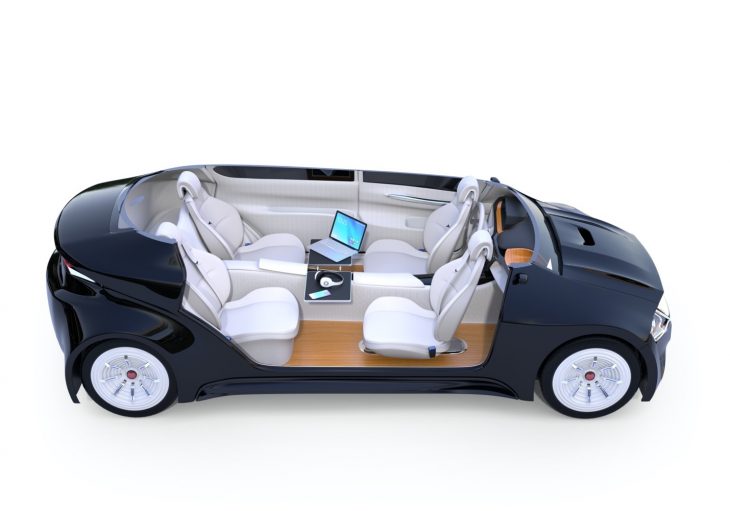
Our driving experiences are about to get a lot better thanks to high-tech car innovations that are slowly but surely making their way in the cars we drive. Keep reading to find out more about what the future has in store in terms of car tech trends!
It was only a couple of decades ago when smart, self-driving cars were just part of sci-fi movie scenarios. Yet, these days we’re closer than ever before to see those movies becoming a reality.
The automotive industry has come a long way in terms of technological advancements. What started in 1886 as a simple four-wheel metal box that took people from point A to point B is today a high-tech driving tool that provides unique travel experiences. Over time, new technologies were developed and included in car making, from electric ignition starters to car radios, power steering, cruise control, electric windows, and so much more.
But, we all knew that technological advancements in the automotive industry weren’t going to stop here. And, in 2014, the first autopilot technology was included in Tesla’s Model S. It featured driver assistance that could steer the car and even changed lanes on the motorway. But this was only the first revolutionary move made by automakers. Last year in March, Google launched its first self-driving car named Waymo Via.
It’s official! The automotive industry has entered the highway to technological innovation, and it won’t stop any time soon. Here are the future automobiles, technology, and services that will impact all of us, consumers, promising to forever change our driving experiences.
Biometrics
Biometrics technology is not a new addition to the automotive industry. However, over the last decade, this technology developed a lot, reaching new capabilities.
Now, there are already millions of cars out there on the roads with some biometric technology features installed in them. Using biometrics, modern cars allow drivers to use voice control to activate navigation and infotainment systems and also support plenty of features such as fuel economy and safety.
Yet, now, Mercedes-Benz’s Vision AVTR show car includes some key tech features powered by biometrics. From detecting the driver’s pulse to detecting their breathing, the car recognizes the driver with a multifunctional element that can be activated with their palm.
Biometrics technology helps make the switch from technologies that focus on the car and the road to focusing on the driver and occupants of the car. Why is that? For many reasons, from ensuring that the driver is paying attention to the road and driving to optimizing the car’s safety systems in case of a crash. This technology also helps tailor infotainment experiences to individual passengers in the car.
Smart helmets
Motorcyclists can also take advantage of the latest tech innovations with the development of smart helmets. Yet, smart helmets should be good news to everybody, not just motorcyclists. Why? Because they will help make the roadways safer for everybody, including car drivers, motorists, and pedestrians as well.
Smart helmets come with plenty of useful features, including high-visibility features such as built-in turn signals and taillights. Besides that, these smart helmets can connect with a smartphone app via Bluetooth and enable some really cool features such as telephony, music, navigation directions, and even accident or fatal detection, as well as automatic emergency service notification.
Cheap lidar
Remember what Elon Musk said about lidar technology in 2019? Tesla’s CEO was pretty vocal about the technology calling it “a fool’s errand.” Elon Musk explained that he believes that the sensors in lidar technology are only expensive sensors and unnecessary.
Yet, despite Elon Musk’s negative opinion about lidar sensors, many automakers and industry experts disagree with him and actually believe that lidar can be the cornerstone of future self-driving experiences.
Put simply, lidar technology involves laser radar and other sensors such as cameras, ultrasonic and long-rage radars that can help vehicles “see” their way on the road. Yet, the industry challenge remains to get the costs of lidar technology a lot lower, so much that not just high-end, expensive car models can have them on board.
Remote smart parking assist
Gone are the days when you had to struggle for minutes to park your vehicle in a tight parking space. Kia and Hyundai 2020 models are only two of the modern car models that come equipped with remote smart parking assist technology.
As car ownership increases by the day and cities are getting busier and busier with more cars on the road, it’s becoming nearly impossible to find a parking spot. And, even if you do, it is likely so tight that you have to struggle to make your car fit there.
However, if you visit a Kia Kansas city dealership or a Hyundai dealership and purchase one of the two carmakers’ latest car models, your parking struggles will disappear forever. The remote smart parking assist technology helps by moving and turning the handle for parking or pulling out.
Solar-powered cars
Can solar light power cars? Yes. Technology in the automotive industry has come such a long way that we can now integrate solar panels into our vehicle’s roofs to power our cars with sunlight.
Toyota Prius and Karma Revero are only a few examples of cars that can be powered by sunshine. Yet, it’s important to know that both cars’ return on investment is pretty insignificant. However, as solar-power technology in the automotive industry is only set to improve in both efficiency and cost reductions, we’re expecting to soon see plenty more vehicles with sunlight-capturing technology.
Now, it may take some time until our cars will rely solely on solar power. However, solar power is already becoming a supplementary power source for modern vehicles. Hyundai Sonata and Fisker Ocean SUV are two car models that are soon going to come on the market featuring the same sunlight-capturing technology.
Smart visors
Struggling with poor visibility when driving on really sunny days? Not anymore as there’s a new technology soon to be included in modern cars.
Smart visors can help improve the old sun visor model that already exists in all cars by providing up to 90% more visibility. Smart visors are basically transparent LCD visors that can be blacked-out in certain sections to block the sunlight in those areas of the visor where it is preventing the driver from seeing the road properly.
What technologies do smart visors use? They can provide improved visibility by using powerful software and a simple driver-facing camera to detect the driver’s eyes’ position.









